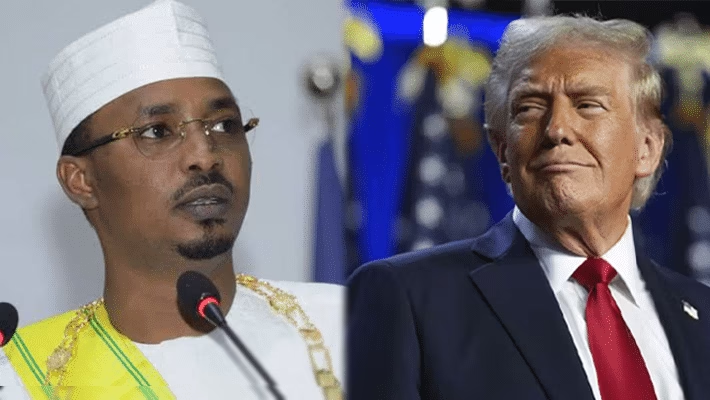Chad’s President, Mahamat Idriss Deby, announced on Thursday that the country will suspend the issuance of visas to U.S. citizens. This move comes in direct response to the Trump administration’s recent decision to ban citizens from Chad and 11 other nations from entering the United States.
President Donald Trump, on Wednesday, reinstated a key immigration policy from his first term, citing “deficient” security screening and a history of non-cooperation in repatriating citizens who overstay their U.S. visas. The new restrictions target 12 countries: Afghanistan, Myanmar, Chad, the Republic of Congo, Equatorial Guinea, Eritrea, Haiti, Iran, Libya, Somalia, Sudan, and Yemen. Additionally, visitors from seven other nations will face heightened restrictions starting Monday at 12:01 a.m.
In a strongly worded Facebook post, President Deby framed Chad’s response as a matter of national pride and principle. “Chad has no planes to offer, no billions of dollars to give, but Chad has its dignity and pride,” he wrote, referencing a $400 million luxury plane reportedly offered to Chad by Qatar’s ruling family.
President Deby further explained that the suspension of U.S. visas was issued “in accordance with the principles of reciprocity.”
The travel ban has sparked diverse reactions across Africa, which makes up more than half of the affected nations. In the Republic of Congo, government spokesperson Thierry Moungalla suggested that the inclusion of his country in the ban was likely the result of a misunderstanding linked to an armed attack in the U.S. “Obviously, Congo is not a terrorist country… We think that this is a misunderstanding,” Moungalla stated from the capital, Brazzaville. He added that the government would soon engage with American diplomatic channels to resolve the issue.
In Sierra Leone, which faces heightened travel restrictions rather than a complete ban, Information Minister Chernor Bah expressed the country’s willingness to cooperate. “We will work with U.S. authorities to ensure progress,” he said.
The broader implications of the renewed travel restrictions are likely to be felt across diplomatic, economic, and humanitarian sectors, especially in African nations striving to strengthen international partnerships.



